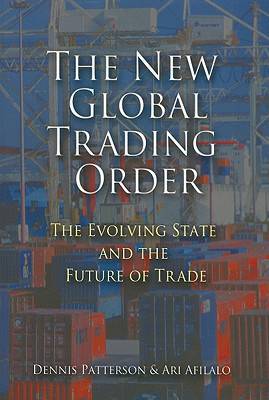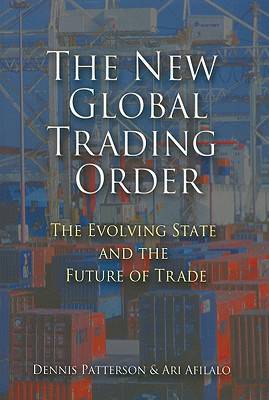
- Afhalen na 1 uur in een winkel met voorraad
- Gratis thuislevering in België vanaf € 30
- Ruim aanbod met 7 miljoen producten
- Afhalen na 1 uur in een winkel met voorraad
- Gratis thuislevering in België vanaf € 30
- Ruim aanbod met 7 miljoen producten
Zoeken
The New Global Trading Order
The Evolving State and the Future of Trade
Dennis Patterson, Ari Afilalo
Paperback | Engels
€ 54,95
+ 109 punten
Uitvoering
Omschrijving
The international institutions that have governed global trade since the end of World War II have lost their effectiveness, and global trade governance is fractured. The need for new institutions is obvious, and yet, few proposals seem to be on offer. The key to understanding the global trading order lies in uncovering the relationship between trade and the State, and how the inner constitution of Statecraft drives the architecture of the global order and requires structural changes as the State traverses successive cycles. The current trade order, focused on the liberalization of trade in goods and services and the management of related issues, is predicated on policies and practices that were the product of a global trading order of the 20th-century modern nation-states. Today, a new form of the State - the post-modern State - is evolving. In this book, the authors propose a new trade norm - the enablement of global economic opportunity - and a new institution - the Trade Council - to overhaul the global trading order.
Specificaties
Betrokkenen
- Auteur(s):
- Uitgeverij:
Inhoud
- Aantal bladzijden:
- 288
- Taal:
- Engels
Eigenschappen
- Productcode (EAN):
- 9780521124683
- Verschijningsdatum:
- 15/01/2010
- Uitvoering:
- Paperback
- Formaat:
- Trade paperback (VS)
- Afmetingen:
- 150 mm x 226 mm
- Gewicht:
- 385 g

Alleen bij Standaard Boekhandel
+ 109 punten op je klantenkaart van Standaard Boekhandel
Beoordelingen
We publiceren alleen reviews die voldoen aan de voorwaarden voor reviews. Bekijk onze voorwaarden voor reviews.











